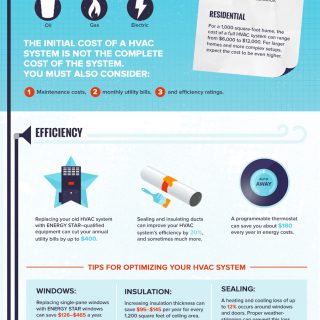Heat Pump Vs Heater - Which Is The Better Heating Option For Your Home?
Heat Pump Vs Heater - Which Is The Better Heating Option For Your Home?
Blog Article
Authored By-Huff Neumann
Many home owners are familiar with heaters, which warmth homes with oil or natural gas and press hot air via ductwork. They are fairly affordable and can supply reliable heating also during a winter season power interruption.
Nevertheless, they make use of fossil fuels and create carbon monoxide and other air pollution. They likewise aren't as energy-efficient as a high-efficiency heatpump.
Cost
Generally, heatpump are more cost effective to operate than heaters. They generally use electrical power and refrigerant to extract heat from outside air, and then move it right into your home. You can take advantage of cheaper electrical energy rates throughout off-peak hours to better reduce your home heating costs.
Unlike heat pumps, gas or wood-burning heating systems make use of combustion to produce warm, discharging flue gases into the environment that can be dangerous to your health. These heaters are also much less energy-efficient than heatpump, and their greater operating expense can accumulate with time.
Heating systems are much more complex than heatpump and call for regular upkeep to make sure the correct feature of all parts. Despite this, they tend to last longer than heat pumps with a regular life-span of 20 years or more. Nonetheless, you'll need to factor in the expense of gas, gas oil or timber and the extra tools needed for setup and procedure such as ducts and ventilation systems.
Energy Effectiveness
Heat pumps have a higher energy efficiency ranking than furnaces. These systems make use of electrical energy to scavenge warmth from the air, also in freezing temperatures. They can additionally eliminate excess heat from the home throughout warmer months and reuse it to cool down the system. Provider professionals can assist you establish the best model for your home based on environment and resource energy costs.
visit the following web page melt fuel oil, gas, natural gas or other sorts of nonrenewable fuel source to heat up the air in the home. This air is after that spread with ductwork making use of a huge fan. Heaters create greenhouse gases and need regular upkeep and tools upgrades to guarantee safe procedure.
The largest advantage of a heating system is that it can be operated even in extreme winter conditions since it does not count on exterior temperature levels to heat the air. Heaters additionally have a longer lifespan than heat pumps and generally last 15 years. They can additionally be paired with double fuel options, which pick one of the most reliable heating option based upon the weather.
Environment
Heat pumps work well in modest environments and make use of much less resource energy than heaters. Nevertheless, if your area is extremely chilly, you might need to invest in a standard gas heating system rather.
Heaters offer cozy, relaxing warmth and typically offer rapid home heating to elevate indoor temperature levels. These systems can be made use of with a variety of gas types, consisting of gas, lp, oil or electricity.
They eat more energy than heat pumps-- up to 3x as much-- and require ductwork that's pricey to install or retrofit. They're additionally much more expensive to keep, as they can trigger air quality issues and create greenhouse gas emissions.
If you're committed to minimizing your carbon impact, a heat pump is a good selection for your home. They have fewer greenhouse gas emissions than heating systems, specifically if you pick an ENERGY CELEBRITY ® heatpump. Your local Service provider specialist can describe the differences in between these two heating systems and help you make the very best decision for your distinct requirements.
Personal Preferences
Heaters can be extremely energy effective when powered by gas, gas or oil, however they aren't as energy reliable as heatpump in freezing environments. They can likewise be extra expensive to mount, needing gas lines and ventilation systems.
Nonetheless, furnaces have a tendency to need less upkeep, which can cause reduced ongoing prices. They produce less greenhouse gases and are extra reputable than heat pumps during severe weather condition.
Electric heatpump are extra flexible in creating interior convenience because they can likewise act as a/c throughout warmer months. They can be easier to keep, calling for just routine air filter changes and occasional vacuuming.
If hop over to here favor the comfort of a solitary system that does it all, consider a crossbreed heating service that sets a furnace with an electric heat pump. These systems can instantly switch over in between the two heating choices based upon your home's needs and temperature conditions, making the most of efficiency and cost savings.